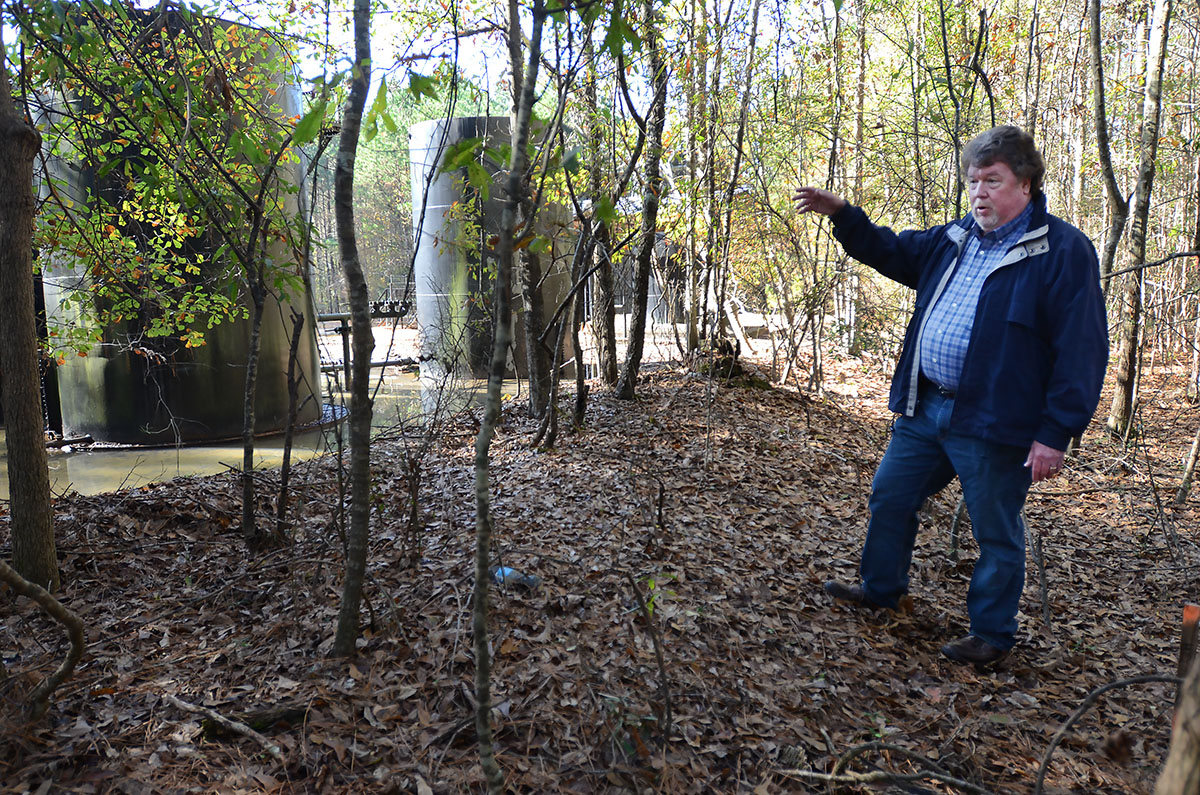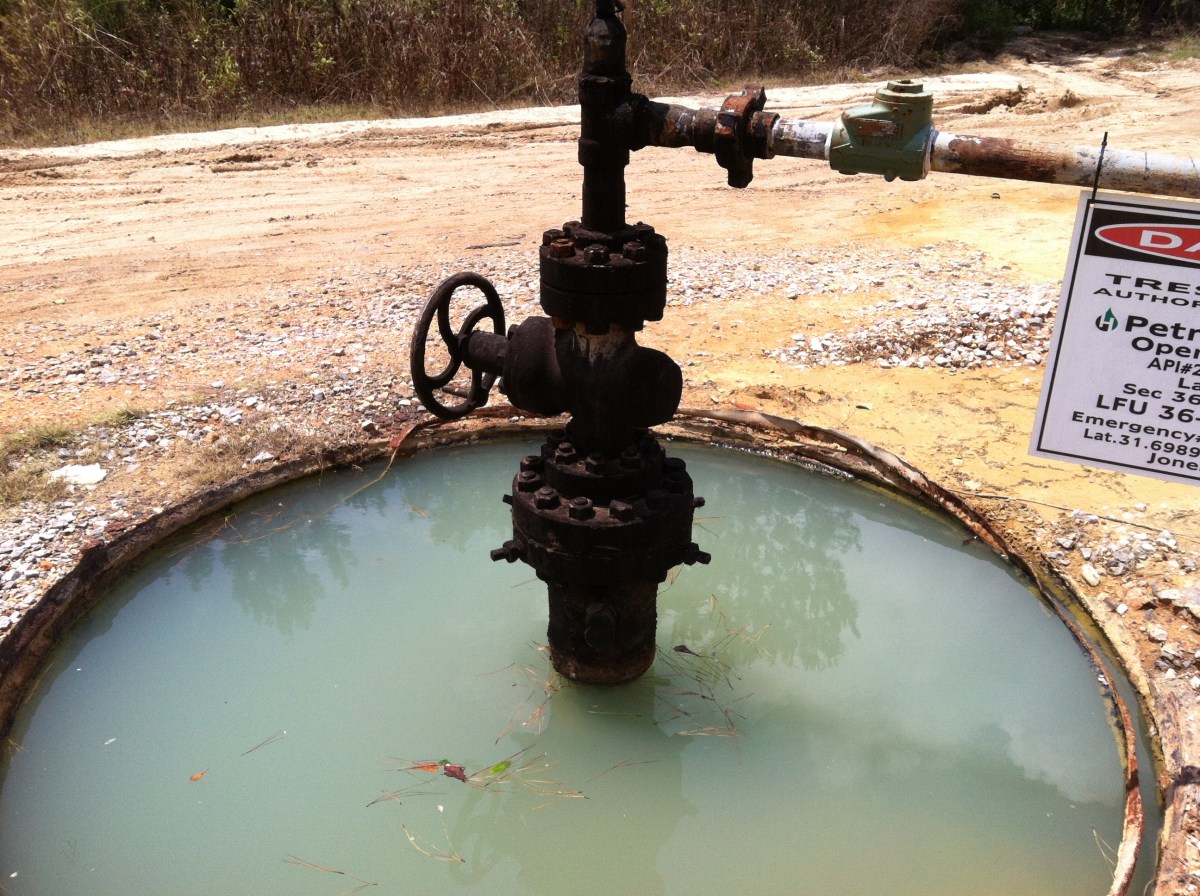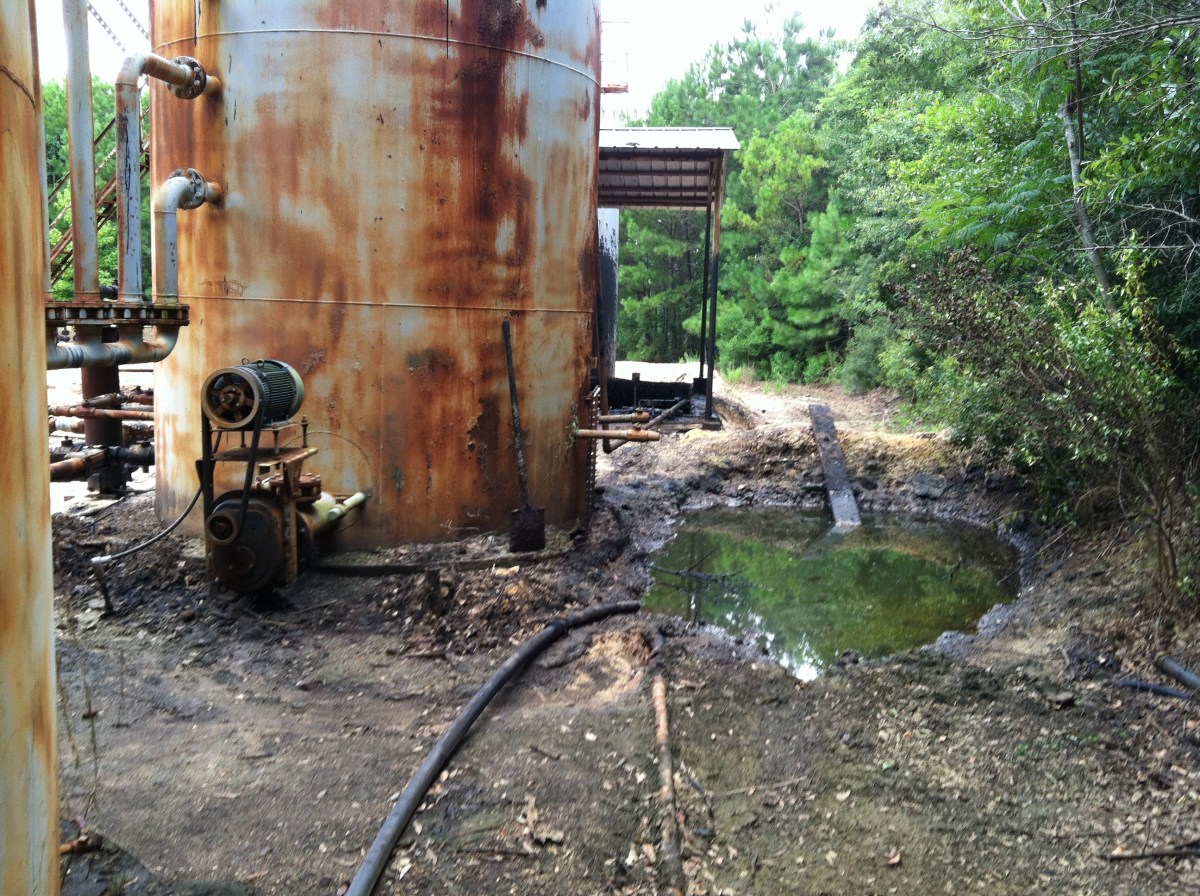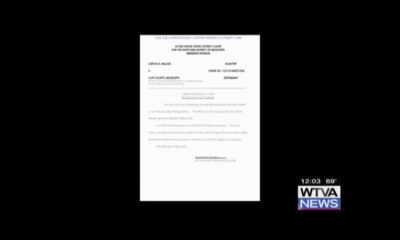Mississippi News
Mississippi couple sues oil and gas board
‘Quit is not in my vocabulary': After his wife got cancer, this Mississippi man took oil companies to court
LAUREL — Driving down his curving, wooded street on the edges of Laurel, Marlan Baucum points to each house where a neighbor had cancer.
He knows of 10 people on his street who have been diagnosed, four of whom have already died. Most have had leukemia, but one neighbor had esophageal cancer — the same type as his wife.
First diagnosed in January 2016, Deidra Baucum underwent chemotherapy and radiation, then lost a large portion of her esophagus in the process of removing the tumor. Though she is currently in remission and has continued to work, she must sleep sitting up, takes medicine at least eight times a day, and regularly struggles with aspiration pneumonia.
“Over at UAB, the doctor was staging the cancer and told me that something else was causing her cancer. He couldn't check a single box for the normal causes of this type of tumor,” Marlan said. “And when he did the second (procedure), he told me, ‘I'm going to give you my card. Your wife needs a lawyer.'”
The doctor didn't know that nearly two years earlier, the Baucums had already filed suit against multiple oil companies for property contamination from a disposal well less than a quarter of a mile from their house.
That lawsuit has been in limbo for years as the parties have fought over the appropriate jurisdiction of the case: the courts, or the Mississippi Oil and Gas Board.
The crux of the Baucums' legal fight is simple: The Baucums believe that the government agency tasked with protecting Mississippians has failed to do so. And the oil companies who own the well have relied heavily on the Mississippi Oil and Gas Board, which the Baucums believe are overly friendly to the companies.
“I feel helpless sometimes (watching Deidra get sick), sitting there thinking, ‘What the hell else can I do?' And my satisfaction is doing this,” Marlan said. “Making sure that people know what has happened to her, what has happened to our property, and what the test results show.”
Drilling for oil is a highly regulated process — or at least it's supposed to be.
When oil is drilled, up to 20,000 feet underground, other harmful fluids are brought to the earth's surface that must be disposed of — usually by collecting them and injecting them into the ground at a disposal well nearby. Disposal wells are constructed of multiple layers of casing and concrete that extend hundreds of feet down into the ground, which are protected by limiting the pressure at which an oil company can inject fluids. It's a process that has been regulated by the U.S. Environmental Protection Agency (EPA) since the 1974 Safe Drinking Water Act, but most states have a local governmental agency that manages the wells on the EPA's behalf.
The Mississippi Oil and Gas Board had held this responsibility since the early 1990s, but Baucum alleges the board hasn't properly held oil companies accountable. He laid out his concerns in a memo sent to the EPA, Mississippi Department of Health, and Mississippi Department of Environmental Quality.
The Baucums have made two main claims:
Claim #1: Oil companies can apply for exemptions to inject into aquifers if regulatory agencies determine that those aquifers are unlikely to be a practical source of drinking water, but the Oil and Gas Board has never required a company to seek one for any of the 400 active injection wells in Mississippi.
When asked for a response, Jess New, executive director of the Oil and Gas Board, explained that no injection zones in Mississippi require this type of exemption. The EPA did tell Mississippi Today that aquifer exemptions are frequently not necessary, but the Baucums doubt that all injection zones have been sufficiently tested before being declared unusable for drinking water.
In the case of the well next to the Baucum's property, records show that the Oil and Gas Board accepted testimony from a single oil company engineer as sufficient evidence that the aquifer was already not suitable for drinking water and conducted no other testing.
While investigating this claim, lawyers for the Baucums found records — which were reviewed by Mississippi Today — that show the aquifer in question is a current source of drinking water for Mississippians who live in the city of Waynesboro and parts of Clarke County.
Claim #2: The Oil and Gas Board allowed oil companies to inject the toxic oil byproduct at a higher pressure than the limit they agreed to in their original permit to build the well near the Baucum's home. This could have a number of other environmental consequences, including widespread water contamination closer to the surface, that the Baucums and their attorneys are still in the process of testing.
Throughout the 20 years that the well near the Baucums' home was being used to dispose of oil byproducts, 86% of the monthly reported injection pressures were either above the maximum limit or recorded as zero while the company was still injecting thousands of barrels of byproduct into the well, according to records from the Oil and Gas Board. The Baucums believe this is a likely indicator of faulty reporting.
When asked about this, New replied that “the board is aware of the monitored injection pressures.”
The Oil and Gas Board, established in 1948, is a five-member body that is tasked with permitting all oil and gas activity in the state and protecting the public from improper usage. Board members are appointed by the governor, lieutenant governor, and attorney general.
Marlan has repeatedly shared concerns about the qualifications of board members, including the political appointment process. Jim Herring, a Canton attorney on the board, previously served as the chairman of the Mississippi Republican Party. Lew Yoder, a Laurel attorney on the board, served as a local GOP chairman in both Jones County and Oxford.
The Oil and Gas Board has 32 full-time employees, managed by New. New was formerly an attorney with Brunini, the Mississippi law firm that represents Petro Harvester, the current owner of the well in question. New is also the son of Nancy New, the subject of a massive ongoing welfare and private school funding fraud case, and served as the attorney of record on multiple of her business enterprises.
“I think too many people look the other way. It's the good ol' boy system that has been alive and well in Mississippi for way too long,” Marlan said.
Marlan first noticed that something seemed amiss in 2013 when he went to inspect a part of their property north of the well site. He saw rusted tanks, drilling fluids stored in open, unlined pits, drilling debris strewn around, and patches of ground soaked with oil — all extending onto their property.
He reported his concerns to the Oil and Gas Board and the Mississippi Department of Environmental Quality, but felt that the regulatory agencies weren't taking his concerns seriously. After his neighbors told him they saw workers burying oilfield waste in the ground nearby, he decided to file suit in April 2014.
The well site in question no longer has this visible evidence of contamination that Marlan documented. Barrels were removed, pits filed, and tanks repainted a few months after the lawsuit was filed. Marlan refers to this as a “cosmetic clean-up,” since he believes it did not fully remediate the property and remove the effects of the contamination.
When Marlan walks around the property these days, some trees fall over at his touch. He says a toxicologist told him they shouldn't be used for lumber and need to be destroyed since many of the harmful chemicals they've identified will be trapped in the wood. Several trees are turning black around the roots, which he says scientists at Mississippi State told him were dying from exposure to brackish water.
“I'll never forget telling him, ‘Dr. Jones, we don't have brackish water in Jones County,' and he said, ‘You do now.'”
Recent testing of the groundwater — via a monitoring well drilled by the Baucums — showed dangerously high levels of toxic chemicals, including radium-228, benzene, mercury, beryllium, barium, and a highly acidic pH. The levels of radium-228 and mercury were both nearly 13 times the EPA's maximum level for drinking water.
John Ryan, the geologist who oversaw the drilling of this monitoring well, listed in his affidavit several known health impacts from the chemicals identified in the water. Those included lymphoma, bone cancer, leukemia, aplastic anemia, as well as permanent damage to the brain and kidneys.
“I believe unequivocally that these chemicals of concern were sourced from the well site itself,” Ryan said in testimony.
Sue Brantley, a professor of geosciences at Penn State University who was contacted by Mississippi Today to review the results, said it seemed likely these chemicals came from surface contamination and called the results “very worrisome.” Since Mississippi sources approximately 75% of its drinking water from groundwater, Brantley reasons these chemicals could endanger people who use the drinking water supply.
Deidra's health issues began to surface in late 2015. She struggled to swallow, which led to the discovery of the tumor in January 2016. Over the next five months, Deidra underwent radiation and chemotherapy to shrink the tumor.
“I found out on Jan. 7, and I had surgery on June 7. It went so quick, that looking back now I can get more clarity on what we went through, but it went just so fast,” Deidra said. “You know, ‘You need to go here and do this, you're going over to this appointment, going to that test.' … But I've not been bitter, I've accepted it for what it is, and we've learned to reshape our lifestyle.”
While Deidra's health deteriorated, Marlan and his attorneys worked to collect evidence linking her cancer to the environmental contamination.
“He has worked so many hours,” Deidra said. “He has been a very big advocate for me, and by way of helping me, it will lead to helping others. But he is relentless, and a very strong support for me for what I've been through. I call him my cheerleader.”
They believe — and argue in their lawsuit — that Deidra's cancer resulted from the contamination at the surface. Runoff water and particles picked up by the wind will often settle in the soil and release vapor which can be easily inhaled.
“She used to (garden) years ago, before she got sick,” Marlan said. “We were always out there. You go out there now, you won't see the flower beds. You won't see anything. Outside of cutting the grass, I don't let them do anything else. The flower beds have died and the grass has grown over. I don't do anything like that anymore, I don't take the chance.”
Deidra and Marlan, both from Laurel, have been together since they were 19. They live in the house that Marlan was raised in, which is also where they raised their son Bryant. They are very involved in the community through their church, and faith has played a crucial role in their lives as they endured Deidra's cancer diagnosis and treatment.
“I just took it that there was a greater purpose (for my illness), and one day I'll find out what that purpose is,” Deidra said.
Two months after doctors removed the tumor and Deidra entered remission, the Baucums amended their suit in August of 2016 to include a personal injury claim. Two months later, Petro Harvester — the current owner of the well — stopped injecting at the site.
After they filed the lawsuit, the oil companies (the Baucums sued all of the previous owners of the well and the current one) fought for an administrative remedy that would let the Oil and Gas Board decide the case first before a judge and jury.
After years of back and forth about whether the case should be heard administratively or before the courts, the Mississippi Supreme Court unanimously ruled in August 2021 that both claims should proceed in circuit court because the Baucums had never consented to the presence of the oil companies in any way, and the Oil and Gas Board did not have the authority to award monetary damages.
While awaiting the jury trial that is likely to occur this year, one of Marlan's major concerns — that the oil companies rely on friendly rulings from the board — played itself out when the Oil and Gas Board held a hearing on the integrity of the well.
Attorneys for the oil companies filed a petition with the Oil and Gas Board to increase the injection pressure for the well in question. Attorneys for the Baucums tried unsuccessfully to have the petition dismissed, arguing to the Supreme Court that the oil companies were attempting to “enlist the aid of the Mississippi State Oil and Gas Board to circumvent” the court's previous ruling.
The Supreme Court never responded. After three hours of testimony from geologists and engineers for both sides on Dec. 15, the Oil and Gas Board granted the petition to modify the well's permit.
“Despite an admission from the operator that it routinely violated the permit … and despite the fact that the well has not been used for five years, the (Oil and Gas Board) granted the petition,” said David Baria, one of the lead attorneys for the Baucums. “(It) levied no fines, provided no admonishment, and made no changes in the operator's permit … If this is how a watchdog charged with protecting our water supply operates, Mississippians should be concerned.”
When contacted for comment on this story, David Kaufman, an attorney for Petro Harvester, provided the following statement:
“Unlike the Baucums' attorneys, Petro Harvester will present the facts of this case in court and before the regulatory authorities,” Kaufman wrote. “We will prove that the lawsuit claims lack any merit at all. The disposal well operations in question are heavily regulated and monitored and have never been found by the Mississippi Oil & Gas Board, the Mississippi Department of Environmental Quality, or the U.S. Environmental Protection Agency to have harmed human health or the environment, despite the Baucums' claims over the years to the contrary.”
This has been a long fight for the Baucums, one that has taken almost eight years and over $200,000 in legal fees. They are eager for justice, though a court date has not been set.
“The government has drug their feet, if they've acted, they've not acted as quickly as they should — I have been very disappointed in the government,” Deidra said. “Marlan has had to pull and fight to get any type of government help.”
Marlan does believe that his family deserves to be properly compensated, but his goals for this case are much broader. He wants to see the well site and surrounding land/groundwater properly remediated, and to see the Oil and Gas Board fully realize its mission as an independent regulatory body.
“I think the system needs to change. I think there need to be more checks on these companies,” Marlan said. “There needs to be a full investigation into all of this, it needs to be thoroughly looked at from all angles so that these kinds of things don't happen again.”
He and Deidra hope this case empowers other people to come forward and will provide them with a road map to take action.
“People have come to me and thanked me for pursuing this,” he said. “These oil companies think that if they delay, delay, delay, you'll just get tired and fed up … But that's not the case here. I think they miscalculated because ‘quit' is not in my vocabulary.”
This article first appeared on Mississippi Today and is republished here under a Creative Commons license.
Mississippi News
Starkville firefighters get creative with new training space
SUMMARY: Firefighters at Fire Station 2 in Starkville, Mississippi, have created a DIY training room in an underused storage space to improve their search and rescue skills. The space is set up with realistic obstacles and scenarios to help them prepare for different situations. The goal is to eventually build a larger-scale facility for more comprehensive training. The firefighters believe that continuous training is essential to ensure citizen safety and respond effectively in emergencies. By practicing in a realistic environment, they can improve their response time and better serve the community.
The post Starkville firefighters get creative with new training space appeared first on www.wcbi.com
Mississippi News
Changes how law enforcement handles mental illness
SUMMARY: Mississippi lawmakers passed House Bill 1640, limiting the time people can be held in jail awaiting mental health care. The law states that individuals awaiting civil commitment can only be held for 48 hours unless facing criminal charges. The aim is to provide timely mental health treatment rather than keeping individuals in jail. The law will go into effect on July 1. Clay County Sheriff Eddie Scott believes these changes are needed to address mental health issues in county jails. While it's a step in the right direction, more treatment facilities are needed to expedite the process and prevent unnecessary stays in jail.
The post Changes how law enforcement handles mental illness appeared first on www.wcbi.com
Mississippi News
SHS seniors take final stroll through elementary school halls
SUMMARY: The senior class at Starkville High School participated in an annual “Senior Walk” where they visited all schools in the district to see former teachers and receive well wishes from current students. They were cheered on by students as they walked through the halls, taking pictures along the way. This stop was at Henderson Ward Stewart, where students in grades two to four showed their support. The school's graduation is scheduled for May 24th. Follow for more news and updates on Facebook.
The post SHS seniors take final stroll through elementary school halls appeared first on www.wcbi.com
-
SuperTalk FM5 days ago
Martin Lawrence making 3 stops in Mississippi on comedy tour
-
Our Mississippi Home4 days ago
Beat the Heat with Mississippi’s Best Waterparks
-
Our Mississippi Home5 days ago
Charlie’s U-Pik: Opening Soon for the Summer Season
-
SuperTalk FM24 hours ago
State auditor cracking down on Mississippians receiving unemployment benefits
-
Mississippi News Video7 days ago
Local dentists offer free dental care in Amory
-
Mississippi News Video3 days ago
Jackson has a gang problem
-
Kaiser Health News4 days ago
Medicaid ‘Unwinding’ Decried as Biased Against Disabled People
-
Mississippi Today2 days ago
On this day in 1950












































![HIGH SCHOOL SOFTBALL: Vancleave @ East Central (5/9/2024) [5A Playoffs, South State]](https://www.biloxinewsevents.com/wp-content/uploads/2024/05/1715460379_maxresdefault-80x80.jpg)









